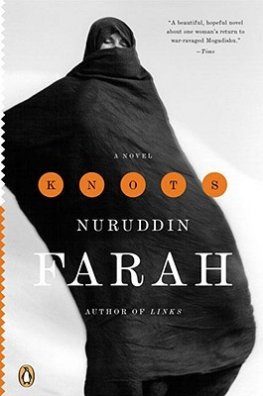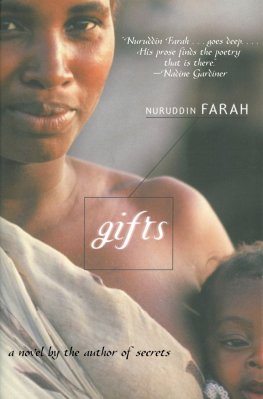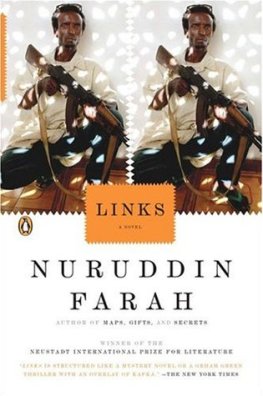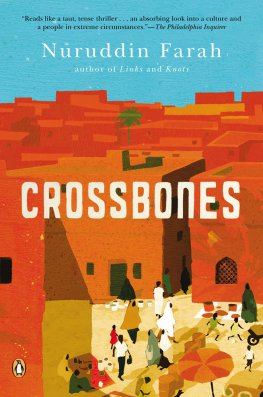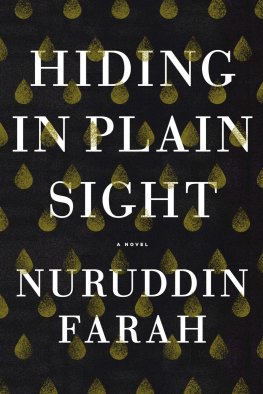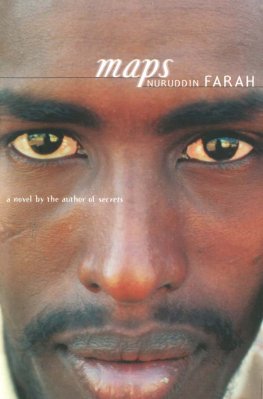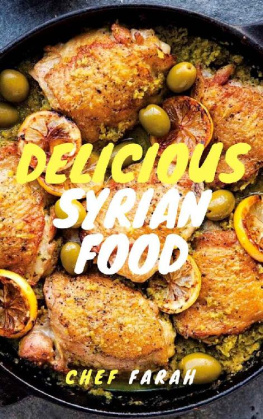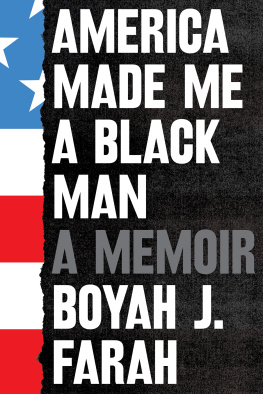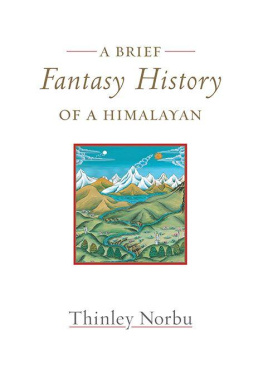To Abyan, my daughter,
and
Kaahiye, my son,
with all my love
Zaak says to Cambara, Who do you blame?
Blame? Cambara asks tetchily, as she goes ahead of him taking the lead, although she has no idea where to go. As it happens, she arrived in Mogadiscio earlier today after a long absence and does not know her way about, the citys landmarks having been savagely destroyed in the ongoing civil war to the extent where, based on what she has seen of the city so far, she doubts if she will recognize it.
Cambara has had the proclivity to keep a safe, polite distance, the better to avoid Zaaks bad breath, diagnosed as chronic gingivitis. When both were younger and growing up in the same household, the dentist would prescribe special toothpaste with antiseptic and aromatic qualities, in addition to a medicinal mouthwash, and a very soft toothbrush with which he was to clean his teeth. Cambara remembers his gums bleeding prolifically and receding wastefully at a phenomenal rate, the inflammation, combined with the irritation on account of the tartar deposits, causing the loosening of several of his teeth. She remembers his suffering from persistent indigestion ever since Arda, her mother, who is also his paternal aunt, brought him from a nomadic hamlet during his early teens as her charge in order to facilitate his receiving proper schooling in Mogadiscio.
Cambara waits for him to push the door shut, which he does with a squeak, and she watches him as he turns the wobbly handle a couple of times in a futile effort to secure it, notwithstanding its state of malfunction. Meanwhile, she reminds herself that it has been years since she last set eyes on him or was in touch with him directly. Arda has carried words back and forth from one to the other and has persuaded her daughter to put up with him, at least for the first few days, since Cambara informed her of her wish to go to Mogadiscio. At her mothers cajoling, Cambara acquiesced to stay with her blood, as she put it, for the first few days, until, perhaps, she has made her own contacts with a close friend of a friend living in Toronto. No doubt, Cambara cannot expect her mother to recall her nephews malodorous breath, nor is it fair to assume that this is reason enough to warrant her daughters not wanting to share the same space. But how on earth could she, Cambara, have forgotten the awfulness of it, so vile it is sickening? Nor had she known him to be a chain-smoker or a constant chewer of qaat, the mild narcotic to which urban Somalis are highly addicted.
Surely someone is to blame? Zaak insists.
Who?
Zaak lets her go past him and out the side gate she almost six feet, he a mere five-foot-seven. Scarcely have they left the compound and walked a hundred meters when she slows down, covers her head more appropriately with a plain scarf as the Islamic tradition dictates, and stays ten or so meters behind Zaak. Her eyes downcast again, as expected of women in Mogadiscio these days she reaches into one of the inner pockets of her custom-made caftan to make certain that she has brought along her knife, her weapon of choice, if it comes to self-defense. A glance in her direction will prove that she is bracing her courage in preparation for an ugly surprise, to which anyone in a civil war city is vulnerable. Herself, she looks in consternation from the dilapidated tarmac road to Zaak, as she releases her stiff grip around the handle of the knife. Then she tightens her lips and moistens them, her head sending two contradictory messages: the one advising that she remain wary, the other declining, as per her mothers suggestion, to put all her trust in Zaak, because he has firsthand knowledge of how things are likely to pan out. Adopting an indifferent posture as she focuses for a moment on Zaak, she studies his expressions or lack of them, and remarks, with surprise, that he does not appear as if he is expecting an untoward occurrence: the telltale advent on the scene of armed youths intent on launching a virulent mayhem that might end in either of them being shot or killed. She tries to relax into a high state of alert, if that is at all possible, and then picks up Zaaks pungent body odor, the unwashed detritus of a qaat-chewers unhealthy living. The power of the stench hits her forcefully, and she comes close to fainting.
In a belated answer to her question Who? Zaak mumbles an unintelligible remark she is unable to make out. With so angry a face, she nervously scans the horizon, as they turn a sharp corner and are suddenly face to face with several sarong-and-flip-flop-wearing youths armed with AK-47s. Her instinct tells her to prepare, her hand making renewed, abrupt contact with the knife, even though two of the youths appear indifferent to her and are religiously chewing qaat and arguing, bansheelike, about yesterdays match between Arsenal and Manchester United, and agreeing that the referee made a balls-up of the game by unfairly red-carding the Gunners captain. Her sense of caution remains relentless until they are well out of danger.
Zaak asks, Et tu?
She is in no mood to answer such a question early in her visit, not until she comes to grips with the complexity of what is in store for her. In fact, she is delighted that she has refrained from engaging him in a serious talk so far, worried that this might give him the license to zero in on her scant preparedness for what she intends her visit to achieve beyond perhaps getting reacquainted with the country of her birth and maybe reacquiring the family property now in the hands of a minor warlord. She is consumed with doubt, wondering if it is possible to accomplish such a feat without a lot of help from a lot of people. Of course, she is well aware that the warlord will give her kind no quarter whatsoever, it being not in the nature of these brutes to show mercy to anyone. What about Zaak, her cousin and current host? Will he extend a protective hand to her if she makes the resolve to confront the warlord? How will he react when she puts his loyalty to the test?
Whatever else she might do, she must not afford Zaak free access to her affairs, at least not before she has consolidated her position and fortified it against its inherent weaknesses, which might come to light after she sets the confrontation with the minor warlord and his armed minions into motion. At any rate, she must not allow Zaak to make her question the motives of her visit, what has prompted her to leave her peaceful life, husband, and job in Toronto, where she has been resident for three-quarters of her life, and come to the war-torn country. She could see questions forming in his head when he met her at the airport, sensing that he wants to ask if she has moved house and relocated to Somalia. Why has she brought so many hefty suitcases filled with all her movable assets?
That she has been unhappy in her marriage to Wardi is no secret everybody has been aware of this for a long time. Moreover, having once been Cambaras husband on paper and having lived with her in confined spaces, first as children growing up, then as a couple who entered into a contract of the marriage-of-convenience kind, Zaak has his partisan views. He thinks of her as a woman capable of exemplary generosity, most loyal, above all, to her mother, very devoted to her close friends, especially to Raxma. But she also cuts the figure of an impulsive woman, difficult to please, harder still to pin down, and known, lately, to be off her rocker, understandably so, because of her sons death. Cambara blames Wardi, her husband, and his Canadian mistress for her sons drowning. And even though he has not dared ask her fearing she might flare up, presuming his question to be provocative Zaak supposes that she is here for a lengthy period, considering the weight and number of suitcases that she has brought along. She may have been attracted to the idea of relocating here out of her desperate attempt to put an ocean between herself and Wardi, but told everyone else, apart from her mother and intimate friends, that she is here to mourn the passing of her only son. But Cambara hasnt dwelled on her huge loss, not even after Zaak offered his condolences, beyond acknowledging them and saying, Thank you. Nor has she let the name of her husband pass her lips or alluded to what is to become of their marriage. She has made a point of giving brief responses to his questions, now nodding her head yes and elaborating no more, now shaking her head no and preferring not to expand further. The last Zaak heard, Wardi is doing splendidly: He is finally a partner in the law firm. For his part, Zaak has steered a judicious course, ostensibly avoiding the obvious and the not-so-obvious pitfalls, and has refrained from pressing her. And whenever they have run out of topics of interest, their conversation has taken a detour and led them to Cambaras mother, whom they both love.

